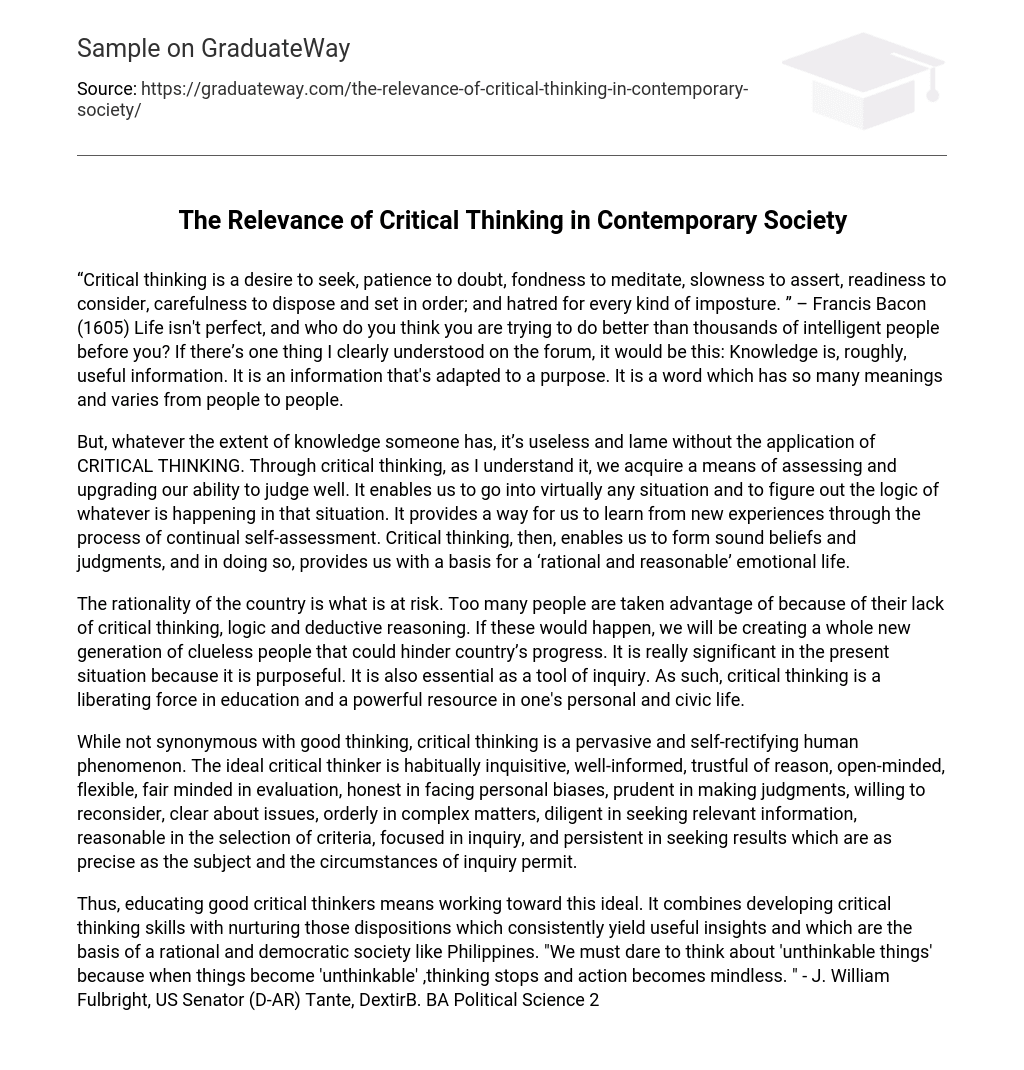“Critical thinking is a desire to seek, patience to doubt, fondness to meditate, slowness to assert, readiness to consider, carefulness to dispose and set in order; and hatred for every kind of imposture. ” – Francis Bacon (1605) Life isn’t perfect, and who do you think you are trying to do better than thousands of intelligent people before you? If there’s one thing I clearly understood on the forum, it would be this: Knowledge is, roughly, useful information. It is an information that’s adapted to a purpose. It is a word which has so many meanings and varies from people to people.
But, whatever the extent of knowledge someone has, it’s useless and lame without the application of CRITICAL THINKING. Through critical thinking, as I understand it, we acquire a means of assessing and upgrading our ability to judge well. It enables us to go into virtually any situation and to figure out the logic of whatever is happening in that situation. It provides a way for us to learn from new experiences through the process of continual self-assessment. Critical thinking, then, enables us to form sound beliefs and judgments, and in doing so, provides us with a basis for a ‘rational and reasonable’ emotional life.
The rationality of the country is what is at risk. Too many people are taken advantage of because of their lack of critical thinking, logic and deductive reasoning. If these would happen, we will be creating a whole new generation of clueless people that could hinder country’s progress. It is really significant in the present situation because it is purposeful. It is also essential as a tool of inquiry. As such, critical thinking is a liberating force in education and a powerful resource in one’s personal and civic life.
While not synonymous with good thinking, critical thinking is a pervasive and self-rectifying human phenomenon. The ideal critical thinker is habitually inquisitive, well-informed, trustful of reason, open-minded, flexible, fair minded in evaluation, honest in facing personal biases, prudent in making judgments, willing to reconsider, clear about issues, orderly in complex matters, diligent in seeking relevant information, reasonable in the selection of criteria, focused in inquiry, and persistent in seeking results which are as precise as the subject and the circumstances of inquiry permit.
Thus, educating good critical thinkers means working toward this ideal. It combines developing critical thinking skills with nurturing those dispositions which consistently yield useful insights and which are the basis of a rational and democratic society like Philippines. “We must dare to think about ‘unthinkable things’ because when things become ‘unthinkable’ ,thinking stops and action becomes mindless. ” – J. William Fulbright, US Senator (D-AR) Tante, DextirB. BA Political Science 2





